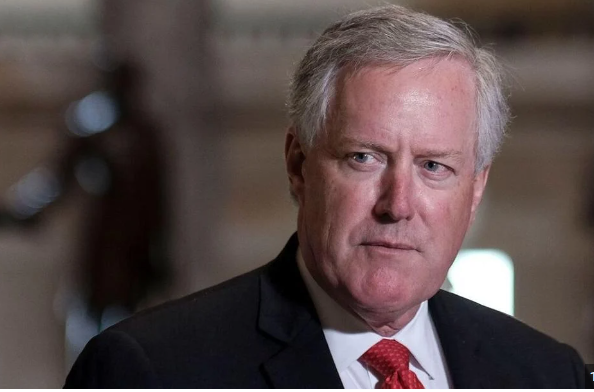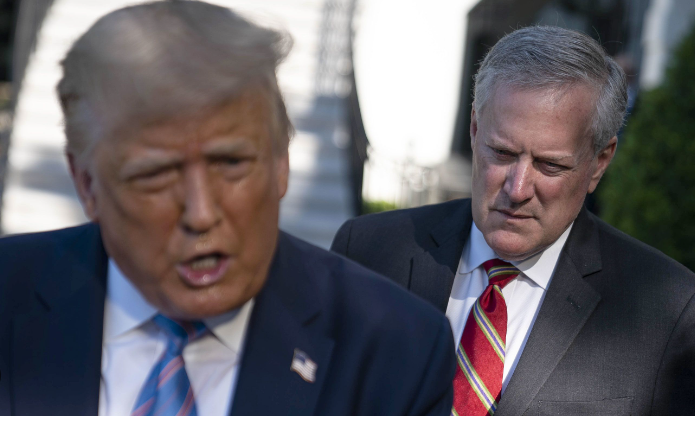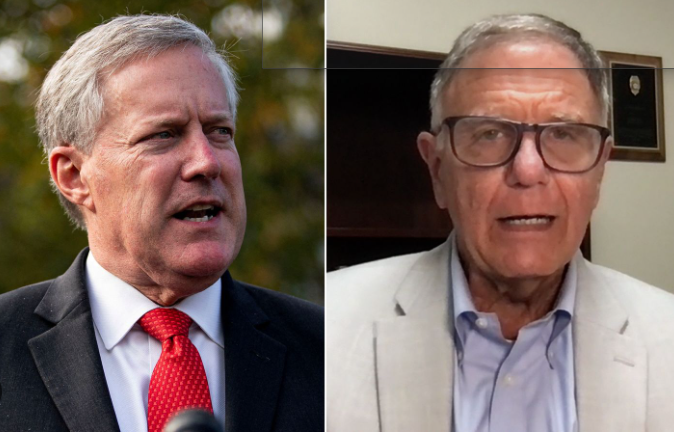I. Introduction
Mark Meadows, a prominent American politician and former White House Chief of Staff, has recently found himself at the center of a legal storm. As a key figure in the political landscape, Meadows’ journey has taken an unexpected turn, with his involvement in a high-profile legal case capturing the attention of the nation. In this article, we delve into the complexities of Mark Meadows’ testimony and legal battle, shedding light on the implications of his actions and the potential outcomes of the ongoing legal proceedings.

II. Mark Meadows Testimony: Shifting the Case to Federal Court
Mark Meadows’ name carries weight not only due to his role as the 29th White House Chief of Staff from 2020 to 2021 but also for his significant political career representing North Carolina’s 11th congressional district in the U.S. House of Representatives. However, recent events have thrust him into a different spotlight. Meadows is currently facing an indictment in a racketeering case linked to efforts to overturn the results of the 2020 presidential election in Georgia.
Meadows’ recent testimony has emerged as a pivotal moment in this legal saga. At the heart of his testimony is a bid to move his case from state to federal court, based on his assertion that his actions were well within the scope of his federal duties. His argument centers around the comprehensive nature of his responsibilities as chief of staff. Meadows contends that his role demanded a constant commitment, often requiring him to respond to various challenges coming from all directions.
The crux of Meadows’ argument lies in the expansive view he holds of his duties, which forms the basis for his case for federal court jurisdiction. However, this move was not without its risks. By taking the stand, Meadows opened himself up to cross-examination by prosecutors, where he had to provide specific details about his actions during the critical period under scrutiny.
Meadows’ testimony underscores the complexity of the case, as it touches on the intersection of state and federal jurisdiction in matters involving high-ranking government officials. The outcome of this legal battle holds implications not only for Meadows but for the broader landscape of political and legal dynamics.
III. Legal Implications and Potential Outcomes
Mark Meadows’ testimony in the effort to shift his case to federal court carries significant legal implications and raises questions about potential outcomes. As the legal proceedings unfold, legal experts and observers are closely examining the arguments presented and the potential consequences of Meadows’ bid to change the jurisdiction of his case.
Meadows’ assertion that his actions were within the scope of his federal duties opens a complex debate about the boundaries of political responsibility and legal accountability. If the court accepts his argument and transfers the case to federal jurisdiction, it could set a precedent for similar cases involving government officials. Conversely, if the argument is rejected, it could reinforce the principle of state jurisdiction over alleged wrongdoing within their boundaries.
The outcome of this legal battle has broader implications for the ongoing discussions about the accountability of public officials. It underscores the tension between political decisions and legal obligations, as well as the intricate relationship between state and federal legal systems.
IV. Mark Meadows: From Political Figure to Defendant
Mark Meadows’ journey from a prominent political figure to a defendant in a high-stakes legal case has been swift and dramatic. His role as a founding member of the Freedom Caucus and his tenure as White House Chief of Staff showcased his influence in shaping policy and political narratives. However, his recent indictment has cast a shadow over his political legacy and reputation.
Meadows’ involvement in a racketeering case related to attempts to overturn the 2020 presidential election has thrust him into the legal spotlight. Named as one of the defendants in the case filed by Fani T. Willis, district attorney of Fulton County, Georgia, Meadows faces charges ranging from racketeering to solicitation of a state official to violate their oath of office.
The legal battle has transformed Meadows’ image from a political ally to former President Donald Trump into a central figure in a legal drama with implications for the democratic process. As the case progresses, the nation watches closely to see how the legal system navigates the complexities of this high-profile case and determines the fate of Mark Meadows.
Stay tuned as we delve deeper into the intricacies of the charges against Meadows and the potential impact on his political career, legal standing, and the larger discourse on accountability in public service.

V. The Intersection of Politics and Justice
Mark Meadows’ legal journey highlights the complex interplay between politics and justice in the American legal system. His attempt to shift his case to federal court underscores the intricate relationship between political decisions and legal accountability. This intersection raises important questions about the extent to which public officials can invoke their federal roles to shield themselves from state-level legal consequences.
Meadows’ case also underscores the broader debate surrounding the separation of powers and the checks and balances within the government. The principle of equal justice under the law is a cornerstone of American democracy, yet the involvement of high-ranking government officials in legal proceedings can complicate the application of this principle.
As legal experts analyze Meadows’ arguments and the court’s decision, the nation grapples with the balance between political actions and legal obligations. The outcome of this case will inevitably influence discussions on the accountability of public officials and the boundaries of their immunity from legal scrutiny.
VI. Navigating Uncharted Legal Waters
Mark Meadows’ journey from the political arena to a legal courtroom represents an unprecedented scenario that navigates uncharted waters. The indictment of a former White House Chief of Staff in a racketeering case involving efforts to overturn election results is a unique circumstance that tests the resilience of the legal system.
Meadows’ testimony to move his case to federal court adds complexity to an already intricate situation. The legal arguments presented and the court’s eventual decision will set a precedent that could have lasting implications for future cases involving high-profile government officials.
The legal community watches closely as the case unfolds, as it has the potential to reshape the legal landscape in cases involving the intersection of political actions, public service roles, and legal accountability.
